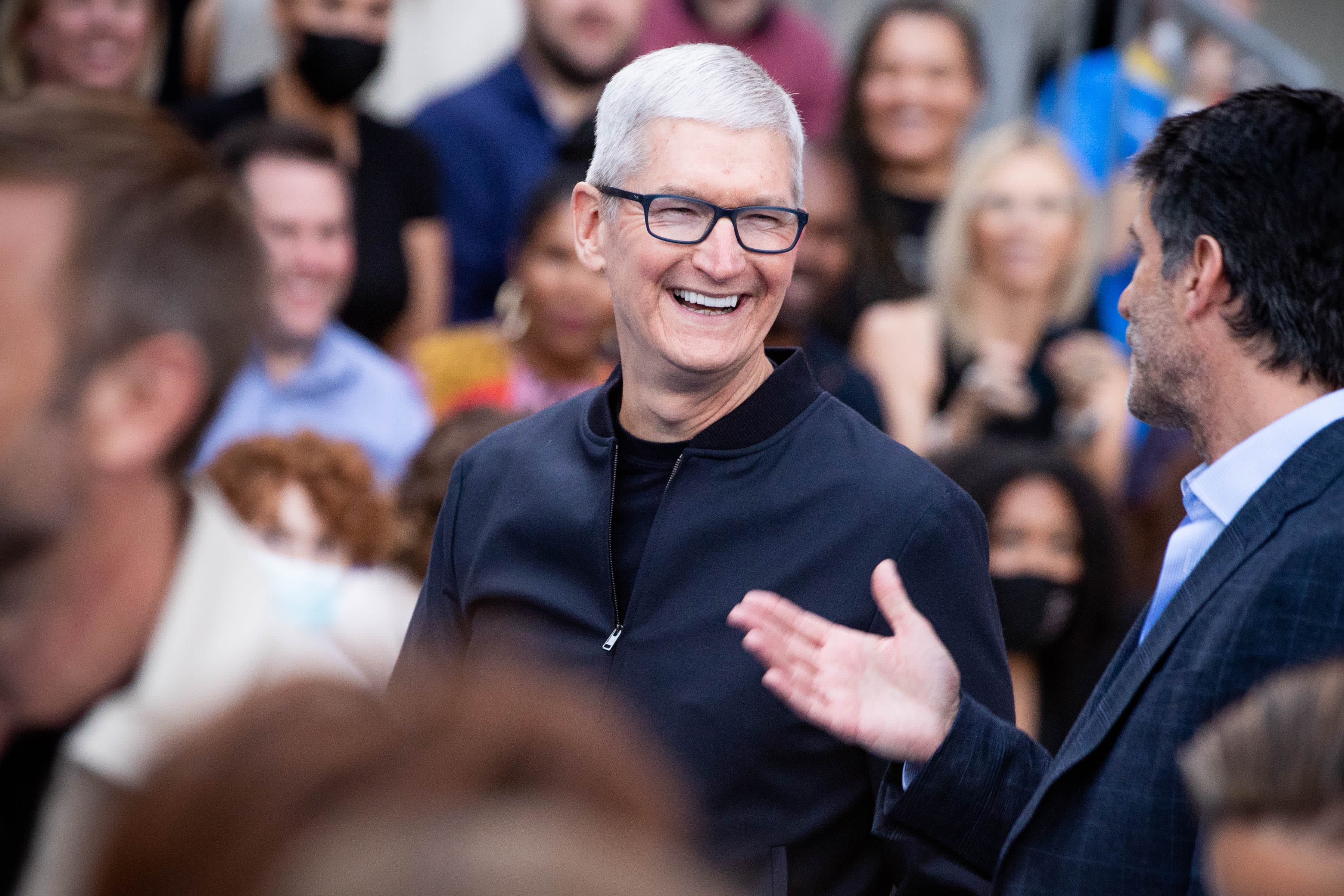Apple’s rise to $3 trillion market cap shows the value of its massive share buybacks

Apple CEO Tim Cook attends Apple’s “Ted Lasso” season two premiere at Pacific Design Center on July 15, 2021 in West Hollywood, California.
Emma McIntyre | WireImage | Getty Images
Apple capped off a stunning rise on Monday when it briefly became the first company to touch a $3 trillion market value before closing the day just short of the mark.
The relentless rise of Apple’s stock speaks to the power of Apple’s capital return program. In the past years, Apple has been the biggest repurchaser of its own shares in the S&P 500 by far.
Apple spent $85.5 billion to repurchase shares and $14.5 billion on dividends in Apple’s fiscal 2021 (which ended in September). Apple spends more on buybacks than other companies who repurchase a lot of their shares, including Meta Platforms (formerly Facebook), Alphabet, Bank of America, and Oracle.
Share buybacks boost stock a company’s stock price by reducing the supply of shares in the market, effectively returning the money to investors through higher share prices. In addition, reduced share counts increase earnings per share, a metric used by many value-based investors to judge a stock.
Apple started to pay quarterly dividends and repurchase its shares in March 2012. Since then and through last summer, Apple has spent over $467 billion on buybacks, according to S&P Global Market Intelligence, which calls the iPhone maker the “poster child” for share buybacks.
In fact, since August 2018, when Apple first hit a $1 trillion value, its stock is up 252%, compared to a market cap increase of about 200%. The disparity is a direct result of its buyback program, which has reduced the company’s share count from about 19.4 billion at the end of June 2018 to about 16.4 billion now.
Investors are beginning to see Apple as a “flight to safety” or quality trade thanks to the combination of its large cash flow and willingness to return that money to investors.
“The recent rally in shares in part may reflect investor expectations of relatively stable demand and continued strong cash flows and capital return for a stock that has performed largely in-line with the market,” Bank of America Securities analyst Wamsi Mohan wrote in a December note.
Can it continue?
Apple’s prodigious cash flow is one reason why investors believe that Apple can continue to spend significant amounts on share buybacks while still growing its headcount and investing in research and development. Apple reported an industry-leading $104 billion in cash flow in its fiscal 2021. By way of comparison, fellow tech giants Microsoft and Alphabet had about $77 billion and $65 billion in cash flows during their most recent fiscal years respectively.
Apple’s ability to generate free cash flow could also allow the company to continue its capital return program even when it becomes “net cash neutral,” which Apple CEO Tim Cook has said that it means that Apple’s total cash will equal its total debt.
In Dec. 2017, alongside a new tax law that allowed it to move most of its cash pile from overseas, Apple said that it planned to no longer maintain its huge cash pile and it planned to return it to investors over time.
Apple’s buyback pace immediately quickened, from $33 billion in fiscal 2017 to $73 billion in fiscal 2018. As of October, Apple has $66 billion in net cash, CFO Luca Maestri said at the time. That’s down from about $163 billion in net cash from when the decision was announced.
In November, Bernstein analyst Toni Sacconaghi predicted that Apple would be able to continue repurchasing between 3% and 4% of outstanding shares through 2026 without taking on net debt — Apple has borrowed in recent years to fuel its capital return program but its spending has been offset by its cash pile.
Apple generally updates investors on its shareholder return plans in April alongside its second-quarter financial results. Citi analysts expect Apple to announce another $90 billion in buybacks and to raise its dividend by 10%.